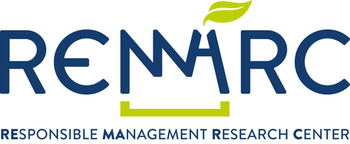This summer school is part of the MIT-UNIPI project (“Ecological Macroeconomics for a Resilient & Inclusive Post-Covid Transition”) and it is organized in collaboration with Prof. Nicholas A. Ashford (MIT School of Engineering, Cambridge, US) and Prof. Ralph Hall (Virginia Tech, US).
The twentieth century saw enormous leaps and bounds in addressing various challenges pertaining to human development – e.g., rapid economic growth, the recognition of climate risks, poverty alleviation, better healthcare for many, addressing racial, gender, and religious inequities, etc. But the trends that have emerged over the past several decades now require society to confront the interlinkages among these challenges to achieve sustainable forms of development.
The critical need to tackle social and environmental challenges jointly has been made evident by the fast spread of the COVID-19 pandemic. On the one hand, scientists claim that deforestation, loss of biodiversity, and industrial animal production are among the main causes of the emergence of pandemics. On the other hand, unequal socioeconomic and occupational status, access to health care, nutritional status, and housing conditions determine an uneven distribution of risks from the COVID-19 pandemic. The COVID-19 pandemic has uprooted many commonly held beliefs around the way the economy should function, specifically with regards to the nature of work. It also provided a glimpse at how a radical decline of industrial output can result in significant environmental improvements. However, entrenched or captured political systems are likely to result in a rapid return to business and usual, unless the political and decision space is expanded to enable new ways of thinking to be heard and understood by stakeholders/citizens. This calls for a deep understanding of the interlinkages among the social, economic, and environmental challenges to provide policy advice for a legitimate, fair, and evidence-informed transition towards sustainability.
The summer school will provide an updated analysis of this problem. During the program, we will consider the inter-relationship of global economic changes, inequality, employment, worker health and safety, and environment in the context of theories of economics, development, trade, technical and organizational innovation, and employment. Mechanisms for resolving the apparent conflicts between these elements will be explored. Moreover, we introduce students to the up-to-date models to explore the economic and environmental performance of specific policy scenarios, necessary for the evaluation of possible synergies and trade-offs across these measures, grounded on system dynamics and ecological economics.
Activities will be articulated in morning and afternoon sessions, combining lectures and group work with both a theoretical and an empirical perspective, focusing on analytical frameworks, research methods, and contribution to collective work.
Some special sessions will give participants the opportunity of interacting with the students attending the “Back to the roots of Ecological Economics” and the “POE” summer schools.
Aim
The Summer School will offer under/post-graduate and Ph.D. students, and early career researchers the opportunity to interact with international scholars with a background in a variety of fields.
The basic purpose is to provide students with a transdisciplinary perspective on sustainable development. It is intended for students interested in planning, policy, economics, business, innovation, environmental studies, and law.
The program will explore the many dimensions of sustainability and how national, multinational, and international political and legal mechanisms can be used to further a transition towards sustainable development. This program is intended to stimulate discussion and critical thinking on the key writings in sustainable development.
Topics addressed include: Ecological Macroeconomics, International Trade and Development, Industrial Ecology, Natural Resources, Policy design, and scenario analyses.
Learning Objectives: Upon completion of this program, students will be able to formulate their own perspective of sustainable development that is informed by existing and emerging theories and approaches, and develop realistic policies/strategies for the transition towards sustainable development.
Global Skills: Upon completion of this program, students will be able to engage in an international research conference, act in a professional and culturally appropriate manner, communicate effectively, and build a professional network.
Who can apply
The course is thought for the student participants to the ESEE 2022 conference.
This, however, do not exlude admission of non participants. Indeed it is open to students at advanced stages of their university career and young researchers in the field of Ecological Economics and Sustainability Studies.
Curricula in natural sciences and science and technology studies may be eligible as well.
Language
English
Program Intensity
Full-time
Application
Admission Requirements
Background in the fields of Ecological Economics, Sustainability, Natural Sciences, and Science and Technology studies.
A statement of purposes from the applicant will be integral to the evaluation for admission.
Evidence of B2 (or higher) level of English is highly recommended.
Required Documents
- Identity Document (*PASSPORT in case you are a foreign student*)
- Enrolment Form
- Curriculum Vitae
- Statement of Purposes
- Certification of B2 (or higher) level of English (not compulsory, but highly recommended)
All the documents must be in pdf format, in order to upload them on the portal when required (See the “How to apply” page)
Fees
250 euro
Pay fees by Debit/Credit Card or PayPal online using the following form filling it with all the required data:
NOTICE:
- International students without Italian Tax Code: please tick the box ‘Anonymous’ in order to disable the field ‘Italian personal ID/VAT number’.
- Please type your NAME and SURNAME next to the pre-filled text of the field ‘Reason’
- Please pay only after receiving the admission letter
Fundings
Please write to the coordinator for further details.
Period
11 – 14 June 2022
Deadline
31 March 2022
Contacts
Coordinator
Dr. Tiziano Distefano tiziano.distefano@unipi.it
Summer/Winter School Office support.summerschool@unipi.it


